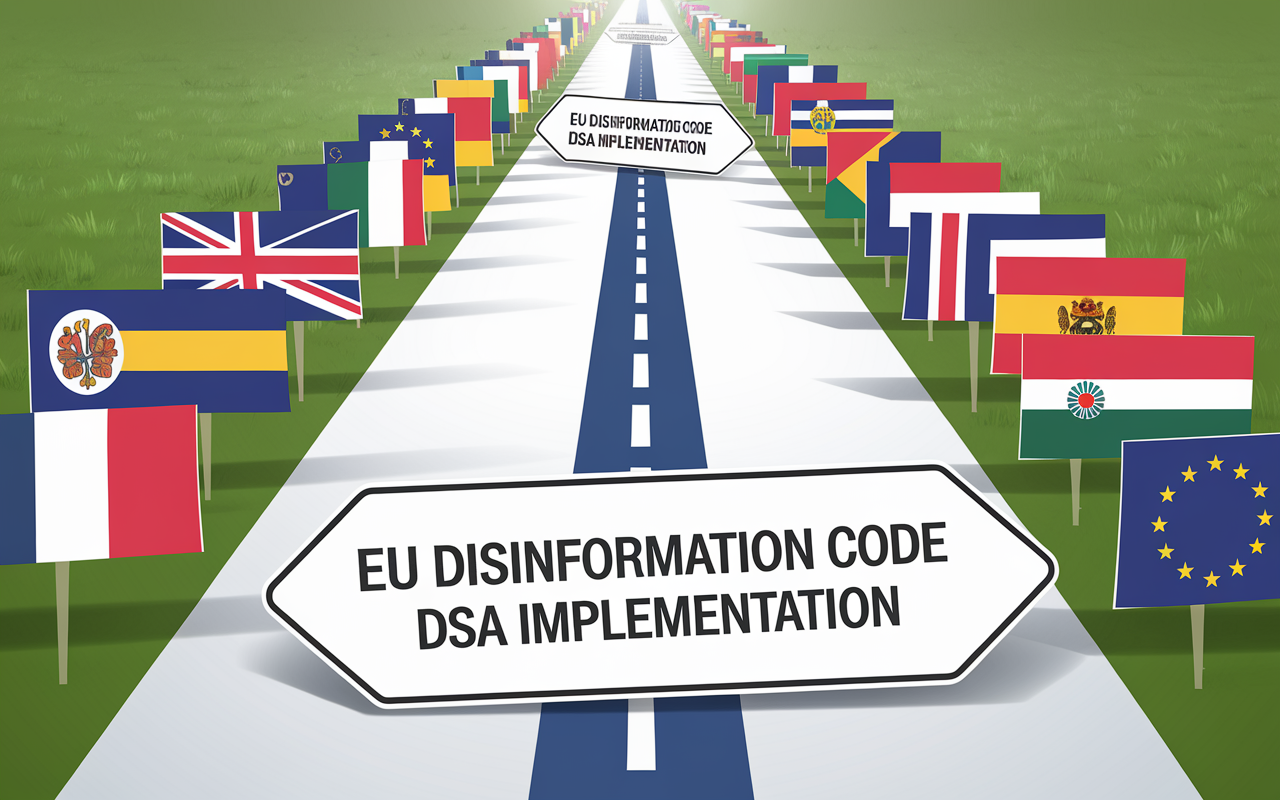EU's Disinformation Code: A Step Closer to DSA Implementation 🌐🔍
The battle against disinformation is a hot topic, especially in the digital age where misinformation can spread like wildfire! 🚀 Recently, news has emerged that the EU's Code of Practice on Disinformation is moving towards becoming a benchmark under the Digital Services Act (DSA)! This is a significant development that takes us a step forward in regulating our online spaces. 📈
What’s the Big Deal? 🤔
For platforms participating in the EU’s initiative, adhering to the Code means more than just good intentions. This Code lays down a clear framework for fighting disinformation—encouraging platforms to take proactive measures like:
- Cutting financial incentives for fake content creators 🤑
- Improving service integrity by reducing bots and fraudulent accounts 🤖
- Supporting independent fact-checking processes 📰
With these guidelines, the EU aims to create a safer, more trustworthy online environment.
The Situation with Major Players 🚀🌍
While some platforms like Elon Musk’s X (formerly Twitter) have publicly backed away from the Code, others like Meta remain signatories, although they're facing scrutiny for loosening their content moderation standards. This inconsistency raises questions: how seriously are these platforms taking their commitments? 🤨
The integration of the Code into the DSA framework is set to kick off on July 1, 2025, which means platforms will need to follow the guidelines strictly—or risk consequences. ⚖️ But will they comply? Only time will tell!
Reflecting on Impact and Accountability ⚖️
As we move closer to a legally binding setup, it’s crucial to examine the implications for digital ecosystems. Are these measures enough to combat the growing threat of disinformation? Can enforcement truly hold platforms accountable? 📅
In my opinion, while the EU's steps toward formalizing these regulations are a positive move, the real challenge lies in consistent enforcement and the willingness of these tech giants to overhaul their systems to prioritize truth over profit. 💰
Conclusion 🔚
As this debate continues, it’s essential for all of us—users, policymakers, and tech companies—to remain vigilant. The responsibility of ensuring that our online spaces are free from disinformation doesn’t just rest on the shoulders of the platforms; it extends to all of us who use them! 🤝
Stay tuned for more updates on this evolving story and how it may reshape the landscape of digital communication! 📲✨
What are your thoughts on the EU's approach to disinformation? Share your insights below! 👇💬
[#Disinformation #DigitalServicesAct]

More Stories
Meta’s AR Ambitions and AI Safety: Insights from the Equity Podcast
Insight Partners Data Breach: A Wake-Up Call for Cybersecurity Awareness
Lovable’s Ascendancy: Anton Osika at TechCrunch Disrupt 2025